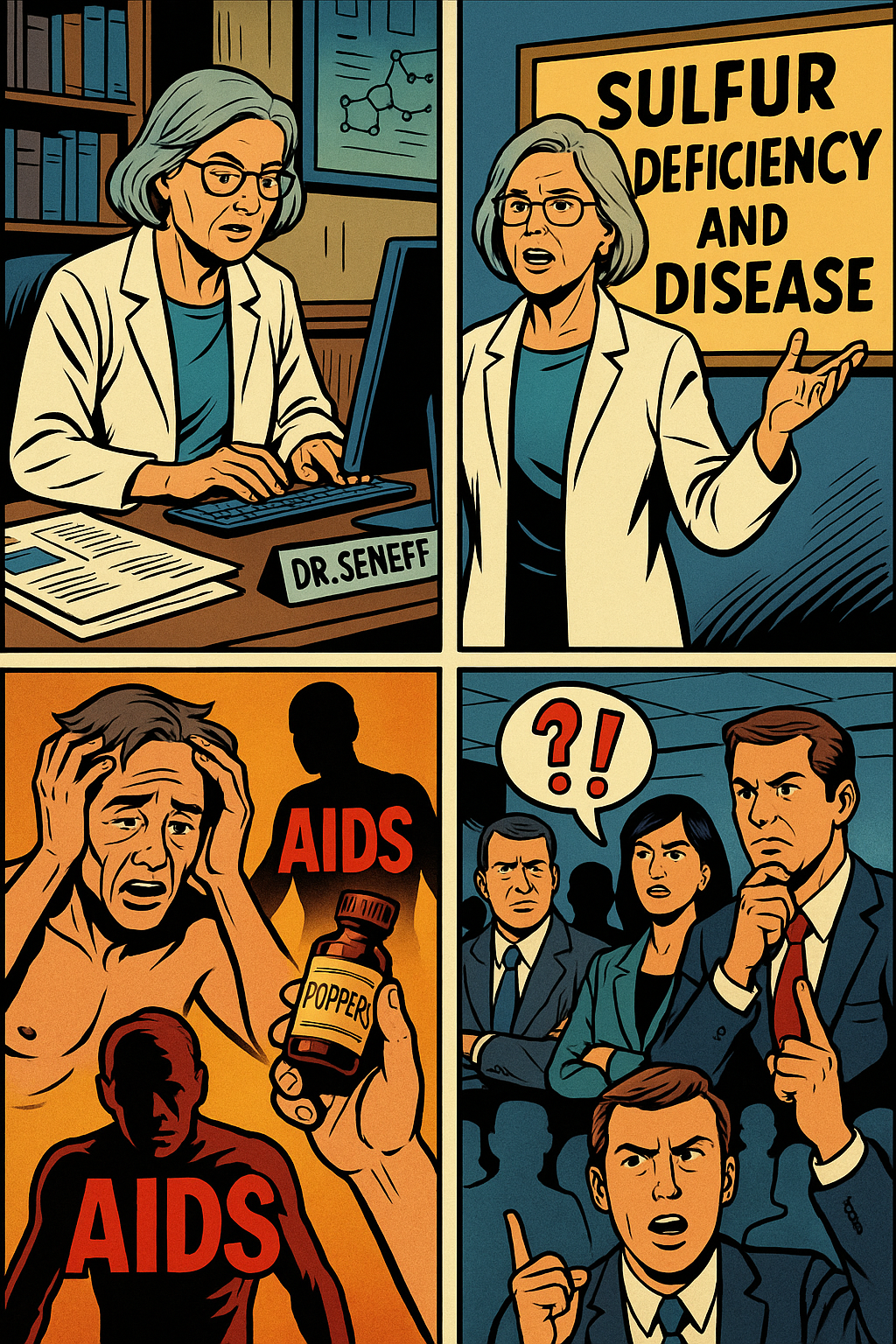Sulfur Deficient Disease
Dr Stefanie Seneff on Sulfur
MIT’s Dr Stephanie Seneff has noted that AIDS is caused by complications linked to insufficient Sulphur in the diet and body. “Poppers”, used by homosexuals to relax their anus muscles, are implicated in the reduction of sulfur.
Dr. Stephanie Seneff, a senior research scientist at MIT’s Computer Science and Artificial Intelligence Laboratory, has explored the role of sulfur in human health, particularly focusing on its deficiency and potential links to various diseases. In her research, Dr. Seneff has proposed that insufficient dietary sulfur may contribute to several health issues, including autism and other chronic conditions.
Sulfur’s Role in Human Health:
Sulfur is a vital mineral involved in numerous biological processes, including the synthesis of amino acids, vitamins, and essential proteins. It plays a crucial role in detoxification, maintaining the integrity of connective tissues, and supporting the immune system. Dietary sources rich in sulfur include garlic, onions, cruciferous vegetables, seafood, grass-fed beef, and organic eggs.
Dr. Seneff’s Perspective on Sulfur Deficiency and Disease:
Dr. Seneff has hypothesized that a deficiency in sulfur, particularly cholesterol sulfate, may be linked to the development of various health conditions. For example, in a 2012 paper, she proposed that inadequate cholesterol sulfate supply during gestation and infancy could contribute to autism spectrum disorders. She suggests that factors such as insufficient sun exposure and low dietary sulfur intake might impair immune responses, leading to increased susceptibility to conditions like eczema and asthma.
“Poppers” and Sulfur Metabolism:
“Poppers” is a colloquial term for alkyl nitrites, recreational drugs inhaled for their muscle-relaxing effects, commonly used to facilitate certain sexual activities. These substances act as vasodilators, relaxing smooth muscles, including those in the anus. While “poppers” have been associated with various health risks, including potential impacts on the immune system, there is limited scientific evidence directly linking their use to disruptions in sulfur metabolism or sulfur deficiency.
AIDS and Sulfur Deficiency:
The established scientific consensus identifies the Human Immunodeficiency Virus (HIV) as the causative agent of Acquired Immunodeficiency Syndrome (AIDS). HIV attacks and weakens the immune system, leading to AIDS if untreated. While nutritional status, including sulfur intake, can influence overall health and immune function, there is no substantial evidence in the scientific literature to suggest that sulfur deficiency alone causes AIDS.
Conclusion:
Dr. Stephanie Seneff has highlighted the importance of sulfur in human health and proposed hypotheses linking sulfur deficiency to various diseases. However, her perspectives, particularly regarding the role of sulfur deficiency in conditions like autism and AIDS, are considered unconventional and have not been widely accepted by the broader scientific community. Current research does not support a direct causal relationship between sulfur deficiency and the development of AIDS. As always, it’s essential to consult reputable sources and healthcare professionals when considering information about health and disease.
